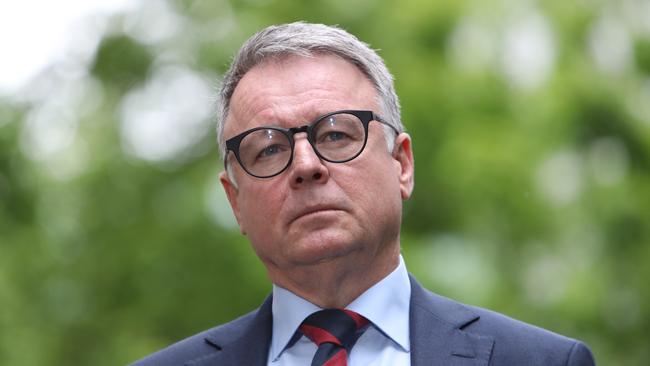Ex-ministers says top brass can’t duck war-crime allegations
Two former defence ministers say military leaders must be held to account if special forces soldiers are found to have committed war crimes.

Two former defence ministers say military leaders must be held to account if Australian special forces soldiers are found to have committed war crimes in Afghanistan.
Joel Fitzgibbon, who held the job during the Rudd government, said if special forces operators were found in an upcoming report by the military watchdog to have broken the laws of war, “they’ll need to answer for it”.
“But so too must those in leadership positions who allowed any bad culture to emerge from the fog of war,” the Labor frontbencher told The Australian.
Mr Fitzgibbon said as defence minister he had “felt the frustrations” of special forces soldiers in Afghanistan, declaring “there were too many signs they were not being given the best chance to win”.
His predecessor Brendan Nelson — John Howard’s last defence minister — said if war crimes were committed, “the guilty will be appropriately punished”. But if unlawful behaviour had occurred, Dr Nelson said: “We need to ask, ‘Where has the chain of command been?’”
The former ministers spoke to The Australian ahead of a report, to be released within weeks, by NSW Supreme Court judge Paul Brereton on dozens of alleged war crimes by Australian forces in Afghanistan.
The Inspector General of the Australian Defence Force report, which Defence Minister Linda Reynolds warned would be “uncomfortable” reading, is likely to lead to criminal prosecutions.
Mr Fitzgibbon, who served as defence minister from December 2007 to June 2009, said he developed the highest regard for the Special Air Service and Commando regiments, and understood their discontent at many of the challenges they faced.
“The release of prisoners they had risked their lives to capture is but one example,” he said. “They were understandably frustrated that while they had to fight within the confines of international law and their own rules of engagement, the enemy was not so constrained.
“They saw billions of dollars being spent on sophisticated high-end air force and navy platforms but couldn’t always get close air support or a medevac when they needed them.
“All of this was compounded by multiple deployment rotations which left them battle-weary and physiologically challenged.”
The Australian revealed on Tuesday that Chief of the Defence Force Angus Campbell had commissioned an independent expert to examine cultural and leadership failings that contributed to the alleged murder of prisoners and civilians by Australian forces in Afghanistan.
Dr Nelson, who was defence minister from January 2006 to December 2007, said the study, to be undertaken by historian and former Anglican bishop Tom Frame, was recognition “that perhaps there has been a failure to some extent, at least culturally, in the chain of command”.
“If a particular culture has developed within an element of the military, in this case the special forces, you have to ask yourself, in terms of the leadership, how that evolved and was able to take root and be present for such a period of time,” he said.
Dr Nelson said the “political class”, which he was a part of, would also have to bear responsibility for what had occurred after they repeatedly sent special forces operators to fight in Australia’s name. “I am also extremely mindful of the detrimental, and in some cases very significant detrimental impact, psychologically, that repeated deployments of this type had upon them,” he said.
The Australian approached three other defence ministers who served during the war in Afghanistan — Labor’s John Faulkner and Stephen Smith, and Liberal David Johnston.
Mr Faulkner and Mr Smith declined to comment, saying they would await the outcome of the Brereton inquiry. Mr Johnston did not respond to The Australian’s inquiries.
Professor Frame’s study will look at the ethical standards and command culture of the SAS and Commando regiments from 1999 to the present day, with a focus on their deployment to Afghanistan.




To join the conversation, please log in. Don't have an account? Register
Join the conversation, you are commenting as Logout